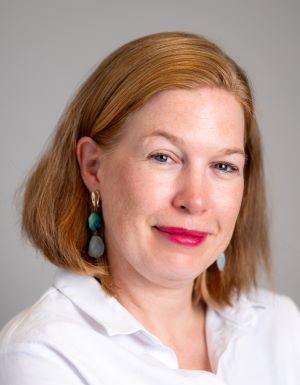Organizing innovation better

What is the best way to organize your innovation skills? That is a question that has intrigued professor Bo van der Rhee and Dr. Richard Janssen for a long time. They suspect that an organization’s middle management plays a key role. Research into this area is relevant, considering the importance of innovation for finding answers to social challenges, and financial support for this research is extremely welcome.
Thanks in part to a generous gift from an alumnus, Thu Anh Le Dang MSc. has embarked on a PhD research project that focuses on how companies can organize innovation capabilities that can simultaneously explore new ideas and leverage existing ones (also called ambidexterity) to deal with uncertainty, adapt to change and remain innovative. The insight she generates is expected to improve companies' innovation processes and contribute to the challenges of the 21st century. Through this meaningful research, Dang is proud to play a role in improving the world with more sustainable values for society.
Why this research is important
“If companies can re-use their ideas and projects, that makes them a lot more efficient. They can avoid wasting funding for innovation, and they can keep talented managers on board. That will accelerate the sustainable transition that the world so desperately needs.”
Dr. Richard Janssen
Associated Professor and initiator of this research project
Five questions for Bo van der Rhee
1. What should you consider when you want to optimally organize innovation?
“Innovation processes are accelerating in the 21st century. Technology is developing at lighting speed, and customers are expecting more and more. Innovation of products and services costs a lot of time and money, and success is far from guaranteed. That’s why it is increasingly important to cash in on innovations quickly, while continuing to invest in future innovations.”
2. Cash in and invest at the same time. How does that work in business?
“We use a complicated word for that: ‘ambidextrous’. The talent for exploiting and utilising innovations, while also exploring; looking for new innovations. The ability to do both at the same time demands a lot from senior management. It requires dynamic skills to manage the virtually constant transformation of your organization.
"In successful innovations, it is precisely the people deeper in the organization who bear a major responsibility. They often know better than anyone else how to adapt to the consumer’s ever-changing expectations."
At the same time, the underlying organizational processes required to be ambidextrous are often overlooked. These dynamic characteristics are also necessary among middle management. In successful innovations, it is precisely the people deeper in the organization who bear a major responsibility for the innovation process. They often know better than anyone else how to adapt to the consumer’s ever-changing expectations.”
3. How should we see the role played by middle management then?
“Middle management often has a special role within an organization. These people are the ones who connect; they are often the glue that holds the company together. This is where you find the people who need to sense the customer’s expectations, seize opportunities and adapt the organization to new circumstances in time. In fact, it’s where a company’s manoeuvrability lies.
"Senior management can create a culture where failure is permitted, and middle management can ensure that ‘failed’ new product development projects can still create value."
Both senior and middle management also play a major role in the development of new products. Senior management can create a culture where failure is permitted, and middle management can ensure that ‘failed’ new product development projects can still create value for the company. We call that ‘Turning trash into treasury’. That attitude can eliminate the fear of the costs of failure, and you don’t have to keep re-inventing the wheel.”
4. So innovation isn’t just the responsibility of the boardroom?
“No, absolutely not. The dynamic characteristics needed to be able to innovate quickly are actually found lower down in the organization. We are interested in the question of how companies can improve their innovation process once they realise that.”
5. Why is Nyenrode the ideal place to study this, and what benefits can it offer organizations?
“We’ve accumulated a lot of experience at Nyenrode in the area of organizing innovation and new product development. Now we aim to expand that knowledge with insights into the role played by middle management. The results will give businesses new insights into how they can best structure their innovation. After all, ‘ambidextrous’ is chiselled into the front gate of the castle: In Dualitate Fortitudo. Strength in Duality.”About the researchers
Prof. Dr. Bo van der Rhee is Professor of Operations Management at Nyenrode Business University. He is affiliated with the Nyenrode Faculty Expertise Centre Marketing & Supply Chain Management. His main areas of research are New Product Development and Supply Chain Optimization.
He has published in a variety of prestigious academic journals, and frequently presents his work at international conferences. He currently serves as Nyenrode’s Director of Research.
Dr. Richard Janssen is an Associate Professor at Nyenrode Business University. He is affiliated with the Nyenrode Faculty Expertise Centre Strategy, Organization & Leadership.
Janssen is fascinated by issues such as survival, transformation, innovation and development. He aims to contribute to companies that embrace change and strive to enhance their impact. He enjoys inspiring leaders in how to innovate to make the world a better place, especially in the food, pharmaceutical and energy industries.
Thu Anh Le Dang is a PhD Student at Nyenrode’s Center for Marketing & Supply Chain Management.
Support our research for a sustainable world
Would you like to join us in contributing to a sustainable world? Donate to Stichting Nyenrode Fonds (Nyenrode Fund), so that we may continue to finance studies like these. We are a private university, and do not receive funding from the government. We depend entirely on private donations from our community.
With your support, we can appoint a young academic professional to conduct this research. By supporting us, you can help Nyenrode and offer young talent the chance to take the next step in their academic career.
Contact
-
Christina Ceulemans
Job title Sr. relations manager fundraiserPhone number +31 (0) 682 607 913Email address Send me an email

